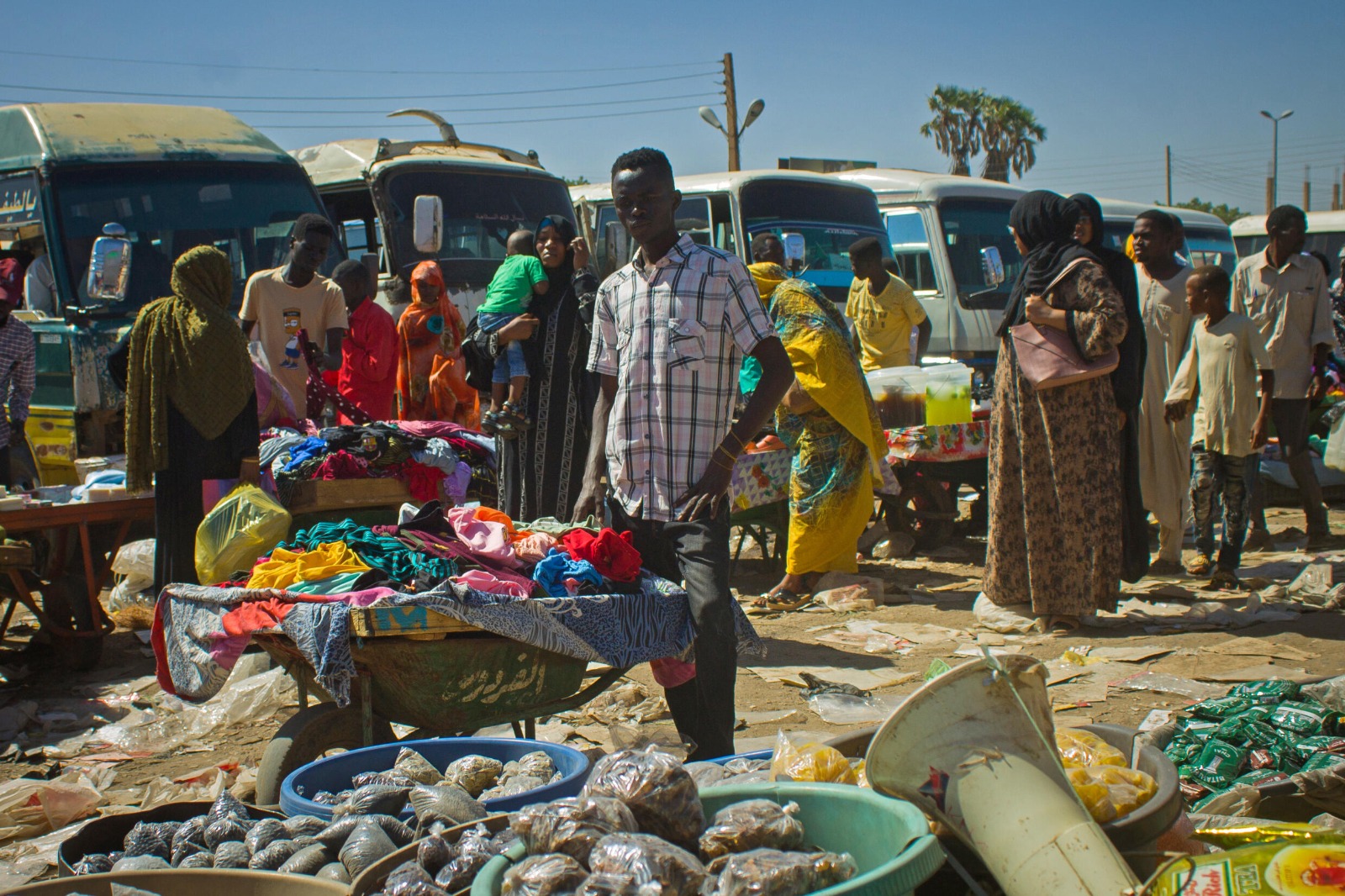
Can the “Port Sudan Government” Win the Battles of War and Taxes?
Ma’ab Al-Mirghani, Khartoum, August 9, 2025 – Jabraka News
As Sudan’s markets grapple with the dual blows of war and economic collapse, Finance Minister Jibril Ibrahim has announced a new package of tax policies aimed at “expanding the tax base” in a bid to boost public revenue. His plan includes fully digitizing the tax system, widening the scope of electronic collection, and upgrading the skills of tax administration staff.
While Prime Minister Kamal Idris’s government presents these measures as part of necessary financial reforms, many business owners and traders view them with deep concern, warning that they will add to the heavy burdens already caused by more than two years of war.
Jabraka News spoke with economists, traders, and exporters to gauge whether these tax measures could become a financial lifeline for the “Port Sudan Government” — or just another weight dragging the economy down.
Public Backlash
Although the Ministry of Finance justifies the broader tax net as essential for offsetting weak public revenues and finding alternative resources to fund services, many Sudanese citizens reject the plan outright. Critics argue that tax revenues are not going toward services or reconstruction, but are instead financing the war.
A resident of Northern State told Jabraka News:
“It’s true, the war is draining the country’s economy. But instead of ending it, they are doubling the pressure on citizens with more taxes and fees, which we see as direct war funding. The continuation of this war proves it. We reject this decision, especially when so many people have no salaries and no daily bread.”
This disconnect between the government’s fiscal priorities and the daily hardship of citizens raises questions about whether such tax policies are viable — or even ethical — in a context of humanitarian crisis.
“Bad Timing” for Traders
For Mohamed Al-Faki, a trader displaced from Omdurman’s main food market to West Shendi, the decision to expand the tax base could not have come at a worse time.
“After the war began, I left Khartoum in my old Corolla, sold it, and used the money to restart my business,” he told Jabraka News.
He says the market is only just beginning to recover after mass displacement, and fears the new taxes will “further complicate the already dire economic reality” for war survivors.
Expert View: Reform in a War Zone
Economist Dr. Wael Fahmi says the Finance Minister’s plan to strengthen the Tax Bureau and expand the tax base is part of a broader reform program, which includes a new law to integrate developments such as the Integrated Financial Management Information System (IFMIS) and the Treasury Single Account (TSA). These systems would digitally link the Ministry of Finance with customs and commercial registries, aiming for tighter control over revenues.
The plan also targets the informal sector, imposing tighter compliance measures so no financial transactions can be completed without tax clearance, and increasing penalties for evasion.
However, Fahmi warns of major short-term challenges:
“The national budget crisis has always been on the revenue side, but in practice, the plan will face big obstacles — especially given the war, possible political fragmentation, and ongoing blockades in key economic zones. Even if the system works on paper, implementation will be slow and limited.”
Fahmi also points to the size and opacity of Sudan’s informal economy — now the main driver of economic activity due to war-related collapse of formal agriculture, industry, and services — as a core challenge. Measuring taxable income in this largely cash-based, unregulated sector is nearly impossible.
He adds that smuggling of goods, especially food and minerals, to neighboring countries is draining potential revenue, while political interference shields some wealthy actors from tax enforcement.
Importers Under Pressure
Former Secretary-General of the Importers’ Chamber, Haitham Al-Tijani, warns that expanding the tax base alongside repeated increases in duties and fees will directly and negatively affect imports, raising costs for essential goods, especially food and medicine.
“Every tax increase directly raises the cost of imported goods, which means higher prices for consumers,” he told Jabraka News.
Al-Tijani notes that many small importers have already exited the market, unable to meet the new obligations. He predicts higher inflation, a surge in smuggling, and further disruption to supply chains already damaged by the war.
He criticizes the lack of consultation with stakeholders, policy inconsistency, and overlapping regulations from multiple authorities — including the Ministry of Finance, Customs, and the Central Bank — which are undermining business confidence.
Key challenges, he says, include fluctuating customs exchange rates, the absence of a clear currency policy, and the proliferation of both official and unofficial levies.
Unfair Competition and Threats to Essential Goods
Al-Tijani also warns that licensed importers face “unfair competition” from unregulated traders who bypass taxes entirely, often using conflict zones and porous borders to avoid oversight.
He calls for integrating the informal sector into the official economy through incentives like temporary tax exemptions, simplified licensing, and public awareness campaigns, alongside stricter border control.
On vital goods, he stresses that medicine supplies are at risk due to foreign currency shortages and licensing hurdles, while higher fees are pushing up food prices, worsening poverty and malnutrition.
“Government announcements about exempting strategic goods remain unclear or unenforced. Without price stabilization funds or targeted subsidies, the burden falls entirely on citizens and importers,” he says.
Traders Feel Squeezed
Small traders across Sudan say they face new taxes and levies almost monthly. In Omdurman’s Al-Wadi Street, shop owner Hassan Osman told Jabraka News:
“We survived more than two years of a brutal war, and now the government is waging another war on us with high taxes. It’s as if they want to push us out of business completely. What are we supposed to do?”
ـ
The Sudan Media Forum and its member organizations are publishing this Jabraka News report to shed light on the state of Sudan’s wartime economy. Experts and traders alike warn that government policies are adding to economic pain rather than alleviating it.


